Federal election 2019: End in sight to long run for Bill Shorten
Ambition pulses through Bill Shorten’s veins. Yet he has often been underestimated.
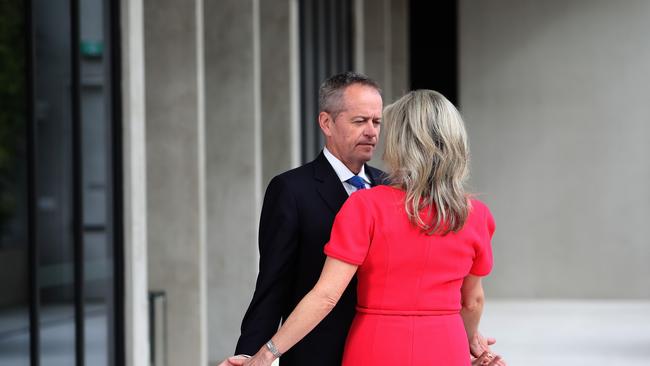
In the early morning hours, Bill Shorten runs. He runs through parks and alongside rivers, through city streets and suburbs, and often with staff, fellow MPs and community leaders.
Shorten has been running his entire life. He has been running for prime minister since he was a teenager. As he runs, he sometimes allows a moment of reflection on the journey that has brought him to this threshold moment, with the prime ministership in reach.
“I’ve been interested in politics since my teenage years,” Shorten, 52, tells The Australian in an exclusive interview. “Politics was always discussed around the family dinner table. So at some point in my late teens, I thought I’d like to be prime minister.
“But when did I think I could be prime minister? That was probably the defeat of the Labor government in 2013. I thought I could actually do the job. I could do the job of uniting Labor. I could do the job of putting the policy together and getting the best out of our team.”
Shorten speaks more personally than he has so far in this election campaign — about himself, his mother and father, his blended family with Chloe Shorten, his faith, his values and what drives him.
History of ambition
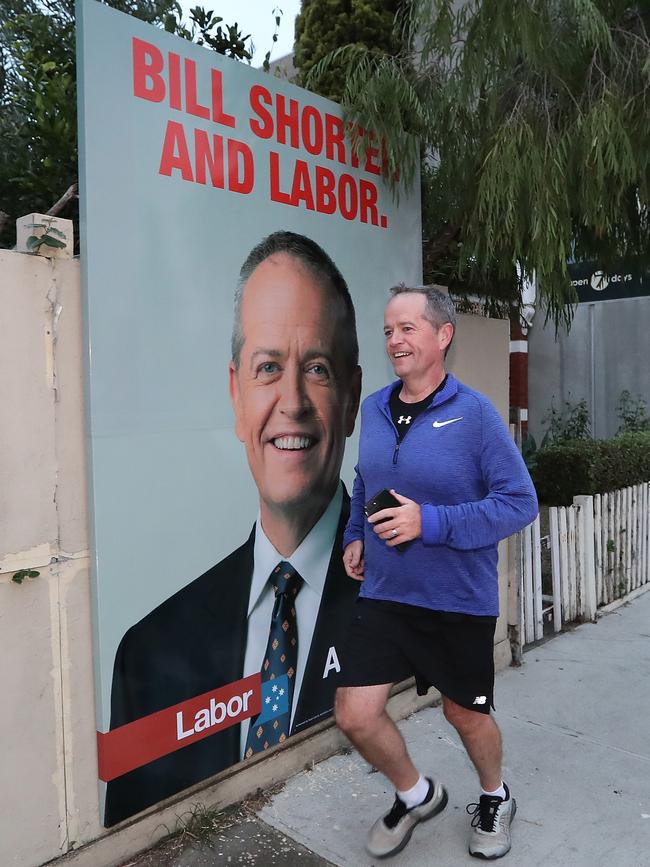
He credits high school teacher Des King with opening his eyes to the formative period in Australian politics pre and post-Federation, from about 1890 to 1914, which saw the expansion of trade unionism, the formation of the Labor Party and the birth of a nation.
But his mother Ann and father Bill had already sparked his interest in history and politics in their discussions around the dinner table. He remembers handing out Labor how-to-vote cards in the mid-1970s. Shorten describes the election of the Cain government in Victoria in 1982 and the Hawke federal government in 1983 as “seminal moments” in his political awakening.
“Mum made me fall in love with history when I was four or five, and then I got interested in politics,” Shorten recalls. “Because my parents were raised in political households themselves, politics was something we did talk about. Dad worked on the waterfront and he’d come home and tell tales from life on the waterfront, so that was interesting too.”
Shorten was deeply upset when he was accused of omitting details about his mother’s career last week for political advantage. It prompted an emotional public response. His mother had wanted to study law but took a teacher’s scholarship because she could not afford to go to university and had to look after the family. She enrolled in law school and became a barrister later in life, something Shorten has never hidden.
Ann died in 2014 and Bill Sr died in 2000. He misses them both. When he meets somebody who knew his parents and they share a memory of something they once said or did, it is like a “gift” from the past where you can “hear them again”, he says. “It’s one of those boomerangs in time.”
A dairy farmer near Geelong told Shorten his mum was an “impressive teacher” and “a feminist before there were feminists”. His uncle George and aunt Helen recently told him his mum would be “very proud” of him.
A unionist in Perth told him his father was respected by those who worked alongside him at the docks on the Yarra River. Shorten recently met his dad’s cousin, who said his British grandmother, Betty Shorten, could not possibly comprehend that her grandson “is running for prime minister” because she grew up dirt-poor in England.
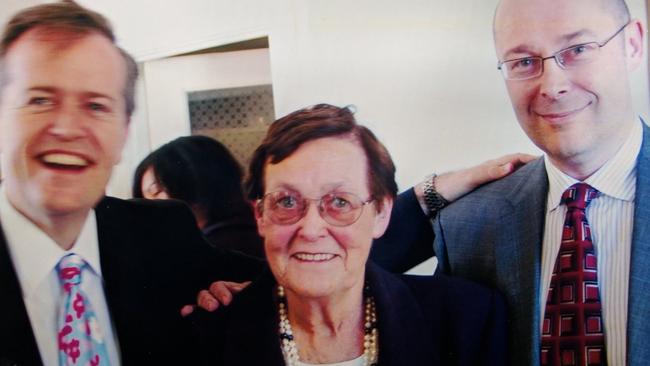
Missing parents
Shorten wishes his parents, who divorced in 1988, were still around. The marriage breakup was not easy and he was estranged from his father for many years. He has slowly come to see himself as a combination of their respective personalities, values and outlooks on life.
“My dad was a people person,” Shorten explains. “He had a massive amount of charm. I’m not sure I am fully him but I have some of that gregariousness. Mum was strong, persistent and hardworking. I really value and respect hard work. This is a truth which I’ve only been able to fully articulate in more recent times. My mum and dad were very capable people and they did accomplish good things over time. But I believe that, given different opportunities, there was so much more that they could have done. And that’s what drives me.”
Shorten does not talk much about his father, who remarried after the divorce. Shorten did not see a lot of his father in the 1990s but they did talk shortly before Bill Sr died. The Labor leader regrets not spending more time with him but explains that Ann was the “bigger influence” in his life. “I’m very proud of my father,” he says. “You grow apart when one’s parents split up.” Shorten remembers being teased about his parents while studying at Xavier College in Melbourne in the late 70s and early 80s. Few students caught the same train or tram to the less affluent suburbs in Melbourne’s southeast. He was asked why his mum never worked in the tuckshop and why she had grey hair, and why his dad had been a seafarer who worked on the blue-collar docks.
“Kids can be cruel,” he says. “It taught me that you don’t ever treat anyone as your superior or anyone as inferior.”
The divorce also had an impact on his twin brother, Robert. The Shorten brothers talk and text regularly. “He’s a great fella,” Shorten says of his brother. “He’s my oldest friend.”
Bill, Robert and Ann studied at Monash University at the same time in the 80s. Shorten graduated with degrees in arts and law, and later earned an MBA from the University of Melbourne. (He would be the first prime minister with an MBA.) Robert and Ann were at the top of their respective faculties, economics and law, at Monash. And what did Shorten do? “I’m running for prime minister,” he says with a laugh. It is a telling comment. The prime ministership has always been his goal.
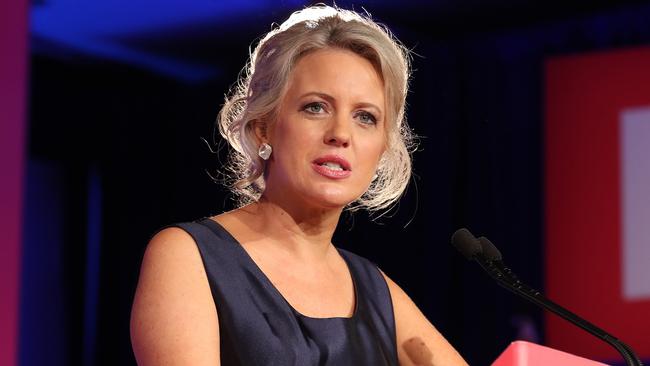
Faith and family
The formative influences in Shorten’s life, he says, have been his family, his love of history, working experience and Jesuit education. “I don’t wear my faith on my sleeve but I do believe in some fundamental tenets of Christianity, such as treating one another as you would like to be treated,” he says, just before the issue of religious belief became a campaign issue.
He converted to Anglicanism to marry Chloe Bryce in 2009, after his eight-year marriage to Debbie Beale ended.
Chloe had two children, Rupert (now 17) and Georgette (16), from a previous marriage to architect Roger Parkin. Bill and Chloe also have a daughter, Clementine, 9. They would be the first blended prime ministerial family. They have not decided whether to move into the Lodge or Kirribilli House if Labor wins the election.
Shorten says being a father of three has changed him. “It has straightened me up a bit,” he explains. “It has made me less selfish. It has taught me the importance of compartmentalising work and family, and not bringing work home. My kids love me unreservedly, which has taught me to love them unreservedly back.”
Being the child of a politician is not easy, particularly given the toxic nature of Australia’s political discourse. Shorten acknowledges that they have been affected. “They didn’t ask Chloe and I to fall in love and get married. I’m deeply conscious that the public profile of my job might burden and put some pressures on them.”
Have they given him advice? “They give me advice on fashion, they told me not to ‘dab’ and they told me not to park the ‘Bill Bus’ anywhere near the house.”
Bill and Chloe love each other deeply. He values her intelligence, judgment and spirit. What role would she play if he becomes prime minister? “She has spent her life being either her mother’s daughter (Chloe’s mother is former governor-general Quentin Bryce) or her husband’s wife. The reality is she is Chloe Shorten, and that’s who she will be,” he says. “She’ll bring all her passions, experiences and capacities, but she is not running for office.”
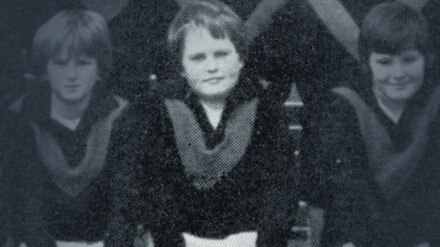
Hidden strengths
As the clock winds down to election day, Shorten’s ambition pulsates through his veins. He knows he has often been underestimated and sees this as an advantage.
“Every day that I’ve been Opposition Leader I’ve wanted to be prime minister and I’ve thought I could win — good days and bad days, and every other day,” he says. “I have an inner confidence and a degree of resilience. I’m good at putting things together. Some people are good at wrecking, I’m good at uniting.”
Shorten has never been short on ego or self-belief. At school or university, as a young state political adviser or budding lawyer with Maurice Blackburn Cashman, or as Victorian state and then national secretary of the Australian Workers Union, cabinet minister or party leader, his self-assuredness has hardly been concealed.
Shorten, like most politicians, craves love. But he has come to terms with the fact he is not a messiah. There is no groundswell of enthusiasm for Shorten, personally, as there was for Gough Whitlam in 1972, Bob Hawke in 1983 or Kevin Rudd, albeit briefly, in 2007.
His leadership strengths are mostly hidden from public. Shorten has always been an energetic networker, alliance builder and deal-maker. He is a supreme pragmatist. His great skill is in close relations. In an interview with The Australian in March, he embraced the suggestion that he is a transactional leader. He says this approach to leadership will pay a dividend on election day.
Shorten united the warring tribes of the AWU. He negotiated the National Disability Insurance Scheme. He brought Labor together after a shattering defeat six years ago, kept its trust and refreshed the party’s policy agenda. His tools, as always, are negotiation, collaboration and what he calls finding “mutual value” and then creating “additional value” by working together.
He says his approach to leadership suits the times. “I believe I’m the best person at this election to become prime minister. I believe that because of my united team. I believe that because of our policies. I believe that because of the skills and passions that I bring to the job.”
Shorten is looking forward to his last early morning run as Opposition Leader on Saturday. It will be the end of a long road whatever the outcome of the election. His race will be run. If Labor loses, history’s judgment will be brutal. If Labor wins, he’ll be vindicated. What will he be thinking about?
“I feel incredibly lucky, privileged and honoured that Betty Shorten’s grandson gets the chance to run. I don’t want to let people down. That’s what will be going through my head.
“I want to do everything I can to fulfil the trust, faith and hope that millions of Australians have and want from a Labor victory.”


To join the conversation, please log in. Don't have an account? Register
Join the conversation, you are commenting as Logout